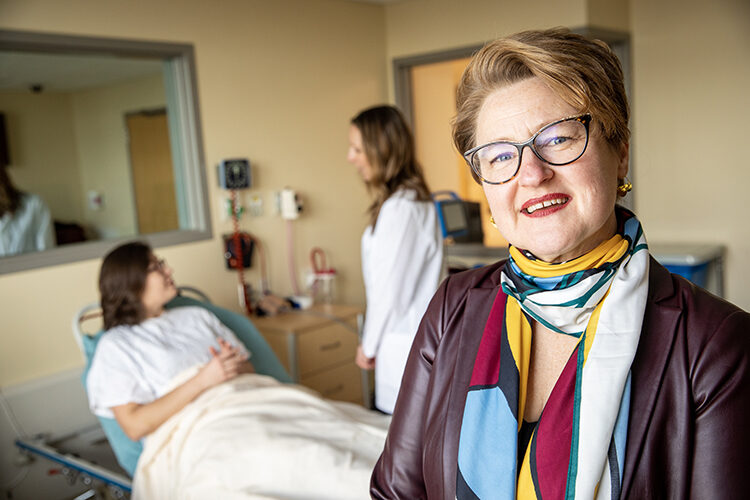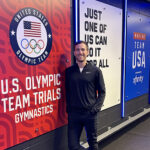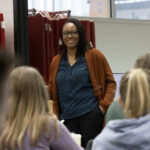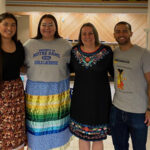For years, Melinda Kavanaugh worked as a medical social worker in hospital neurology units. She knew firsthand how unprepared many physicians were to deliver a devastating diagnosis such as amyotrophic lateral sclerosis/motor neuron disease (ALS/MND).
“I would frequently see the door open and a doctor’s head pop out with a look of sheer panic, motioning me to come in because the patient and the family were in distress,” said Kavanaugh, now a professor of social work at UWM.
Her research has involved caregiving for patients with both ALS, also known as Lou Gehrig’s disease, and Huntington’s disease. Both are incurable disabling illnesses that have few or no treatment options and are ultimately fatal.
For many health care professionals, giving this diagnosis is an emotionally challenging task that they lack the training to manage. Yet, how they eventually convey that information can make a great deal of difference in how patients and their families begin their journey and face the challenges to come, a fact that is backed up by research.
Tool helps health care providers and patients
Kavanaugh was on a team that developed a new training tool to help health care practitioners deal with their discomfort and better support patients when announcing a diagnosis such as ALS. The training also can be used by ALS patient advocacy groups and clinical fellowship programs to provide training to enable better communication.
The project is led by Dr. Angela Genge, director of the ALS Clinic at the Montreal Neurological Institute-Hospital, also known as The Neuro. Genge invited Kavanaugh and another ALS clinician, Dr. Colleen O’Connell at the Stan Cassidy Centre for Rehabilitation at Dalhousie University, to create the training.
“Physicians are not always well-trained in that bedside manner,” Kavanaugh said. “But also, physicians in certain fields have to tell patients distressing health news over and over. So they practice a certain amount of self-preservation. And when they’re in that mode, their communication comes off as robotic.”
The team’s training tool takes into account the self-care of the physician or the allied health professional, while also providing a better experience for the patient and caregiver.
‘Doctor was so uncomfortable’
One such patient is Norm MacIsaac, who has lived with ALS since 2014 and is an advocate with ALS Quebec and the International Alliance of ALS/MND associations.
“When I was first diagnosed with ALS, the doctor was so uncomfortable. It felt like she had never given this diagnosis before,” Maclsaac said. “I received next to no information. So I went for a second opinion, and this time I met Dr. Genge. The experience was night and day. Hers was a message of hope.”
Genge, Kavanaugh, O’Connell and the rest of the team were inspired by approaches developed by Toronto oncologist Robert Buckman, who has trained health care staff in addressing the needs of people being given a cancer diagnosis. “There are many similarities between ALS and oncology in how patients feel at the time of diagnosis and the impact for both at the beginning of the patient journey,” Genge said.
Clear steps
The ALS training includes a 90-minute workshop with additional videos that provide concrete, clear steps to better respond to patients, such as:
- Make eye contact.
- Ask permission to give results and what to do if they don’t want to receive the message yet.
- Validate their feelings but also offer reasons for hope.
- Reassure them that their provider team will support them.
“As part of preparing for this, health professionals are guided through a mindfulness exercise,” Kavanaugh said, “to try to get at the question, ‘When I feel anxious about talking about this, where does it come from? Is there some trauma that I need to work through myself?’”
The training was recently introduced at the International ALS/MND Allied Health Professionals Forum, she said, and response was overwhelming. “We’ve been approached to do this literally worldwide,” she said.
Other members of the team that developed the training include Cathy Cummings, executive director of the International Alliance of ALS/MND Associations. The program is also supported by Mitsubishi Tanabe Pharma Canada. For more information on the training, contact alliance@als-mnd.org.







